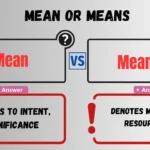In professional communication, clarity is key. Misusing terms can lead to misunderstandings and a lack of professionalism.
One phrase that often causes confusion is “revert to us.”
It is not correct to use “revert to us” to mean “reply” or “respond”; instead, use clear alternatives like “please reply” or “kindly respond” for effective communication.
This article will delve into the nuances of this term, exploring its correct usage, common missteps, and better alternatives to enhance your email communication.
Understanding the Phrase “Revert to Us”
The term “revert” originally means to return to a previous state or condition. It comes from the Latin word revertere, which means “to return.”
In legal and technical contexts, “revert” accurately describes returning to a prior condition or status.
Historical Usage:
- Legal Context: In legal terminology, “revert” refers to property returning to a previous owner or condition.
- Technical Context: In tech, it means undoing changes and reverting to a previous state.
Common Misuse in Emails: In everyday business communication, however, “revert” is often misused to mean “reply” or “respond.” This misuse can lead to confusion and miscommunication.
Common Misuses of “Revert” in Email Communication
The misuse of “revert” in emails often stems from a misunderstanding of its meaning. Here are some common misuses:
- Incorrect Usage: “Please revert to my previous email with your feedback.”
- More Accurate Usage: “Please reply to my previous email with your feedback.”
Examples of Misuse:
- An email requesting a response might say, “Kindly revert to this message.” The sender likely means “please respond,” but “revert” here could confuse the recipient.
The Inaccuracy of “Revert” as “Reply” in Emails
Using “revert” to mean “reply” is inaccurate and can disrupt communication clarity. Here’s why:
- Definition Mismatch: “Revert” implies returning to a previous state, not simply replying.
- Semantic Confusion: In most contexts, “reply” is the more appropriate term for responding to an email.
Comparison:
| Term | Definition | Example Usage |
| Revert | To return to a previous state or condition | “The system reverted to default settings.” |
| Reply | To respond to a message or query | “Please reply to this email with your feedback.” |
Dissecting the Phrase: Why “Revert” Can Lead to Confusion
The phrase “revert to us” can lead to confusion for several reasons:
- Ambiguity: Recipients might not understand whether they should respond to the email or return to a previous condition.
- Lack of Clarity: Using “revert” can make the request sound less direct and more ambiguous.
Case Studies:
- Miscommunication Scenario: A project manager asked team members to “revert to the email.” Several team members were unsure whether they should simply reply or revert changes made in a project.
- Clarified Communication: After switching to “please reply with your updates,” the communication became clearer, and responses were more timely and accurate.
The Preferred Verbiage for Professional Correspondence
For professional correspondence, clarity is crucial. Instead of using “revert,” consider these alternatives:
- Reply: Direct and clear. E.g., “Please reply to this email with your feedback.”
- Respond: Suitable for more formal communication. E.g., “Kindly respond to this request by the end of the day.”
Examples of Effective Communication:
- Requesting Information: “Please respond to this inquiry at your earliest convenience.”
- Follow-Up: “I would appreciate it if you could reply to this email with your availability.”
“Revert to Us” in American vs. British English
The phrase “revert to us” has different connotations in various English dialects.
- American English: Rarely used. Americans are more likely to use “reply” or “respond.”
- British English: Sometimes used, but can still be confusing. British English speakers might understand it but prefer more precise terms.
Usage Trends:
- American Business Communication: Prefers “reply” or “respond” for clarity.
- British Business Communication: Might use “revert” but often opts for clearer alternatives.
How Different English Dialects Affect Business Lingo
English dialects influence business terminology and communication styles. Here’s how:
- Regional Preferences: Different regions may favor different terms, impacting international communication.
- Clarity vs. Formality: Some dialects prioritize formal language, while others value clarity.
Global Communication Tips:
- Understand Regional Preferences: Adapt your language based on your audience’s location.
- Use Clear Terms: Opt for universally understood terms to avoid confusion.
Colloquial Uses of “Revert to Us” in British and Indian English
In certain English dialects, “revert to us” is used colloquially but may still lead to confusion:
- British English: Sometimes used informally but can be misunderstood.
- Indian English: Commonly used in business communication, though it may confuse non-native speakers.
Colloquial Examples:
- British Usage: “Please revert to us with your comments.”
- Indian Usage: “Revert to us at your earliest convenience.”
Alternatives to Saying “Revert to Us”
Here are some clear and professional alternatives to “revert to us”:
- Reply: “Please reply to this email.”
- Respond: “Kindly respond with your feedback.”
- Update: “Provide an update on the matter.”
Usage Examples:
- Request for Action: “Please provide an update on the status of your report.”
- Follow-Up Request: “I look forward to your response to my previous email.”
Avoiding Redundancy and Ambiguity in Business Writing
To maintain clarity and avoid redundancy:
- Be Specific: Use clear terms and avoid ambiguous phrases.
- Eliminate Redundancies: Avoid repeating information or using unnecessary jargon.
Checklist for Clear Writing:
- Use Direct Language: Choose words that clearly convey your message.
- Avoid Ambiguity: Ensure that your requests and instructions are unambiguous.
- Review and Revise: Always proofread your emails for clarity.
Eliminating Confusing Phrases for Clear Communication
To improve communication, eliminate phrases that cause confusion:
- Identify Problematic Phrases: Recognize phrases that may be unclear or redundant.
- Replace with Clear Alternatives: Substitute confusing phrases with straightforward language.
Common Confusions:
| Confusing Phrase | Clear Alternative |
| Revert to us | Please reply to us |
| Kindly revert | Please respond |
| Revert with your feedback | Provide your feedback |
Adopting Clear and Effective Email Etiquette
For effective email communication:
- Be Clear and Direct: Use precise language to convey your message.
- Follow Professional Standards: Adhere to established email etiquette practices.
Final Tips:
- Use Plain Language: Avoid jargon and overly complex terms.
- Proofread: Ensure your emails are free of errors and clear in intent.
Conclusion
In conclusion, while “revert to us” may be used in some English dialects, it is generally better to use terms like “reply” or “respond” for clearer communication.
By adopting these best practices and avoiding ambiguous phrases, you can enhance your professional correspondence and ensure that your messages are understood as intended.
Clear communication not only reflects professionalism but also fosters better understanding and efficiency in business interactions.

Sophie Mitchell, a seasoned English educator, brings her passion for language and years of teaching expertise to TalkSpeaker. With a knack for simplifying grammar and expanding vocabulary, she empowers learners to master English with confidence.




